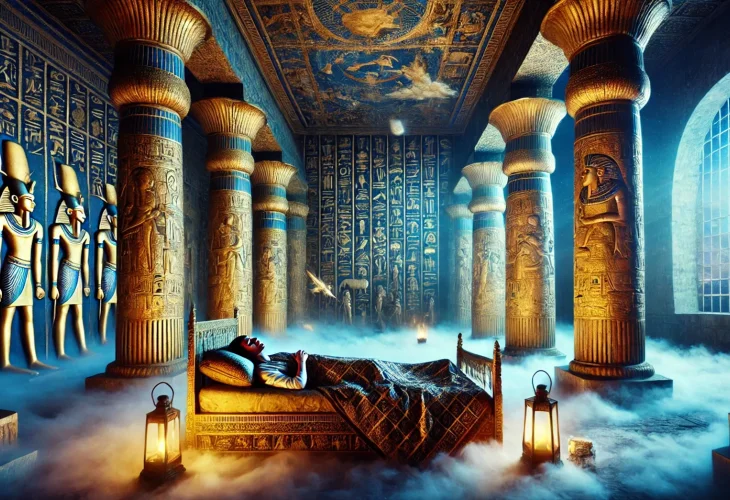Issues in the Bible
Pharaoh’s Dream and Joseph’s Awakening: The Hidden Power Behind History
True change begins not in palaces of power, but with individuals of faith who awaken the light within the darkness

"And it came to pass, at the end of two years, that Pharaoh dreamed... and Pharaoh awoke, and fell asleep again, and dreamed a second time... and in the morning, his spirit was troubled."
The Torah paints a fascinating picture of Pharaoh, who was the most powerful man on earth at the time, the ruler of Egypt, and worshipped as a living god by his people. His authority was absolute; with a single command, he could decree death upon all newborns or issue any cruel order without question.
And yet — after two years, the Torah tells us only one thing about him: “Pharaoh dreamed.” He accomplished nothing of true value. He contributed nothing to humanity. Perhaps he caused suffering, perhaps he built monuments, but spiritually and morally, there was nothing. He simply dreamed. Even when that dream came to him, he went back to sleep. God sent him another dream — perhaps this time he would wake up, pay attention, take action. But still, in the morning, all we hear is: “and his spirit was troubled.” Out of boredom, he summoned Yosef (Joseph). The rest, as they say, is history.
The Contrast: Pharaoh and Jacob
The previous Torah portion opens with the words: "And Yaakov (Jacob) dwelled in the land of his father’s sojournings, in the land of Canaan. These are the generations of Yaakov: Yosef..."
Yaakov was merely settling where his father Yitzchak (Isaac) had lived — a short and seemingly uneventful stay. What significance could there be in one shepherd, living quietly in Canaan, wishing only for peace and rest? Yet the Midrash says, “Yaakov sought to dwell in tranquility — and the turmoil of Yosef leapt upon him.”
To the outside world, Pharaoh’s palace was where “history” was being made. Yet the Torah reveals the opposite: the actions of a humble shepherd in Canaan had far greater cosmic impact than the decrees of the most powerful ruler alive.
Pharaoh’s dreams, his rise and fall, even his place in history — all existed merely to serve the destiny of Yaakov's descendants. The Torah doesn’t even bother to record Pharaoh’s personal name (unlike later Pharaohs, such as Pharaoh Necho or Pharaoh Shishak). His identity matters only as a tool in the unfolding story of Israel — the fulfillment of Yosef’s dreams, the enslavement of the Hebrews, and the ultimate redemption through divine justice: "And the nation they will serve, I shall judge, and afterward they shall leave with great wealth."
Had Yaakov’s story never unfolded, we would never have heard of Pharaoh. Archaeologists might have unearthed his tomb, but his name would mean nothing. It is only through the consciousness of Israel, and of all who inherited the moral vision of the Torah, that Pharaoh is remembered — as a symbol of arrogance, transience, and divine purpose working through human pride.
The Power of the Individual
This contrast teaches a profound truth: history is not always written in palaces or battlefields. True history — the kind that shapes the moral and spiritual destiny of the world, is often written quietly, by individuals whose actions seem small at the time.
While the world’s attention is fixed on empires and rulers, God’s focus rests upon a single shepherd, a solitary dreamer, or a lone family lighting a candle in the darkness.
The Connection to Chanukah
Parashat Miketz is always read during Chanukah, and the parallel is striking. In the time of the Maccabees, the mighty Seleucid generals of Antiochus — Nicanor, Lysias, and the Hellenized leaders of Jerusalem — Jason, Menelaus, Alcimus — seemed destined to be the heroes of history.
Yet the ones who changed the world were a handful of unknown priests hiding in caves — Matisyahu and his sons, who rose up for the sake of Heaven. Their courage and faith added a new holiday to the Jewish calendar — something that, until then, only prophets had done.
Once again, it was not the powerful empires but the faithful few who became eternal.
History is shaped not by those who dream of power, but by those who act with faith. Not by the sleepers in palaces, but by the awakened souls who, like Yosef and the Maccabees, transform divine dreams into living light.

